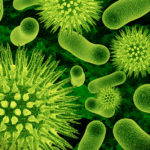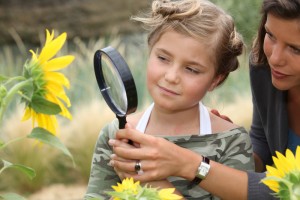
Governments across the world are increasingly realising the importance of science, technology, engineering and maths (STEM) in determining the success of economic futures. Postgraduates of STEM subjects can play an important role in steering the economy in the right direction by driving innovation, undertaking significant research and providing much-needed entrepreneurship.
Teachers who are confident with both subject knowledge and pedagogy can mould positive attitudes towards science early on in Primary (Elementary) school. However, it is well documented, through teacher surveys, that many Primary School teachers lack confidence in their own abilities to teach science effectively (Harlen and Qualter, 2008; Cobern and Loving).

It is well regarded that effective science learning is established through inquiry. Some companies have capitalised on this by producing science kits that contain a range of appealing resources.
It is well regarded now, that the most effective way to teach science is through the adoption of inquiry-based learning. Many companies have capitalised on this theory and have produced science kits for teaching inquiry. The theory behind these kits is that if teachers are given appealing, well-designed resources, guidelines for teaching effective inquiry, and professional development to assist them, then their teaching will improve and positively impact outcomes for pupils.
The Best Evidence Encyclopaedia (BEE) has produced a systematic review of different approaches to the teaching of primary science. The US and England-based team, led by Robert Slavin, compared inquiry-based and technology-based science programs with each other or with standard teaching methods.
What they did
The authors carried out a systematic review of current literature, using a technique called ‘best evidence synthesis’ (Slavin, 2008) to identify research papers that are unbiased and meaningful. This involves pooling the results of a range of different studies. Whenever this is done in a systematic review, the authors should consider if the studies are similar enough for this pooling to be appropriate.

Many relevant studies focusing on scientific inquiry in primary schools, had to be excluded from the current review due to weaknesses in their methodology. Only 17 met the inclusion criteria and only 3 of those were randomised.
A total of 17 studies met the following inclusion criteria:
- Published from 1980 onwards
- Published in any country
- Published in English
- Use of randomised or matched control groups
- A science study duration of at least 4 weeks
- At least 2 teachers and 15 students in each treatment
- Studies that used independent achievement measures (e.g. National test results) or experimenter-made measures that covered content taught in both the control and experimental groups
Studies were excluded if the achievement measures were focused purely on objectives that were taught in the experimental group but not in the control group. Much of the research in this field makes unfair measurements like these, and claims that one form of teaching is more effective than another, when the impact measured is simply due to the improved coverage and time spent focused on the particular objectives in the field, rather than the impact of any teaching methods.
They compared the following approaches to teaching science:
1. Inquiry-oriented instructional process programs without kits

Some inquiry-oriented approaches place an emphasis on coaching teachers to enable them to improve children’s understanding and curiosity.
With an emphasis on teachers improving science learning through developing students’:
- understanding/ concept development
- curiosity
- cooperative learning
- ability to apply scientific methods
These interventions emphasise professional development and coaching for teachers, to help them implement approaches effectively. Examples of these approaches include Conceptual Challenge, Science IDEAS, and Collaborative Concept Mapping.
2. Inquiry-oriented instructional process programs with science kits
With an emphasis on providing teachers with a range of resources and guidance for teaching hands-on activities. The aim of these kits is to develop deeper science learning. Examples of such kits include FOSS (Full-Option Science System) and STC (Science and Technology for Children).
3. Technology–focused programs

Children can use technology individually, through computer-assisted instruction, to learn new science concepts.
Using teaching and cooperative learning in combination with either:
- Individual technologies
- Computer-assisted instruction
- Class-focused technologies
- Video technology
- Interactive whiteboard technology
- Combinations of different technologies
Examples of these programs include BrainPOP and The Voyage of the Mimi.
4. Control groups where there was teaching as normal
The review authors pooled the effect sizes of studies in each arm and weighted the effects based on the size of the included studies.
What they found
Inquiry-based programs that did not use kits and technology-focused programs scored well, although the technology studies had small sample sizes, and so are less robust. The inquiry-based programs using kits scored less well and had almost no positive impact on learning:
- Inquiry-oriented programs that did not use kits, but did emphasise teacher professional development (weighted effect size (ES)=+0.30 in 8 studies)
- Technology-focused approaches (weighted ES=+0.37 in 5 studies)
- Inquiry-based programs that use kits (weighted ES=+0.02 in 4 studies)
The authors concluded
The evidence from studies that met the inclusion criteria supports a view that improving outcomes in primary science depends on improving teachers’ skills in presenting lessons, engaging and motivating pupils, and integrating science and reading. Technology applications that help teachers teach more compelling lessons and that use video to reinforce lessons also have promise
The Education Elf’s View
 Much of the existing research about the impact of science teaching methods is methodologically unsound, and therefore unreliable. Many studies are subject to bias, sometimes from the researchers themselves, as they may wish to promote a particular approach to teaching science. Furthermore, some studies use outcome measurements incorrectly and draw inappropriate conclusions from the data. This is ironic when considering that much of our primary science curriculum focuses on teaching the concepts of ‘fair testing’.
Much of the existing research about the impact of science teaching methods is methodologically unsound, and therefore unreliable. Many studies are subject to bias, sometimes from the researchers themselves, as they may wish to promote a particular approach to teaching science. Furthermore, some studies use outcome measurements incorrectly and draw inappropriate conclusions from the data. This is ironic when considering that much of our primary science curriculum focuses on teaching the concepts of ‘fair testing’.
The authors of this paper used reasonable inclusion criteria and critical appraisal skills to exclude many of the weak studies that have been published to date. This is a well-conducted systematic review, although it does have some limitations. These include:
- Non-English language research was excluded
- Only 3 of the 17 included studies were randomised
- Many of the technology program studies had small sample sizes
- Some of the included studies were of a short duration (as short as 4 weeks in length)
Further high quality, large-scale, randomised control trials (RCTs) will be needed to reliably determine how to further improve science teaching and learning, and understand why science kits are not more effective. Whatever the future holds for primary science education, we cannot deny the importance of teachers’ confidence, enthusiasm, subject knowledge and understanding of the scientific process. It is clear that deepening the learning of teachers can only help to improve standards in science education and hopefully encourage children to pursue the subject further.
Some positive actions to address the issues of teacher professional development are already in place. Several organisations in England, including the Wellcome Trust, the Department for Education and Rolls-Royce have joined together through the ENTHUSE Charitable Trust, and provide support in the form of the ENTHUSE Award. These awards are given to schools to enable them to send teaching staff on excellent Continuing Professional Development (CPD) courses at the National Science Learning Centre.
Links
Slavin R, Lake C, Hanley P and Thurston A Effective Programs for Elementary Science: A Best-Evidence Synthesis (pdf) Best Evidence Encyclopaedia (2012).
Harlen W and Qualter A The teaching of science in primary schools. London: Fulton (2008). (Amazon link).
Cobern W and Loving C Investigation of pre-service elementary teachers’ thinking about science (abstract). Journal of Research in Science Teaching, 39, 1016-1031 (2002).

It is a shame that the Ed Elf doesn’t put into context why: “Governments across the world are increasingly realising the importance of science, technology, engineering and maths (STEM) in determining the success of economic futures. Postgraduates of STEM subjects can play an important role in steering the economy in the right direction by driving innovation, undertaking significant research and providing much-needed entrepreneurship.” There is a concerted political attempt to undermine subject areas that don’t fall under the STEM umbrella as the Con/Lib government feel that arts, humanities, creative subjects are not worthy of central government funding through the cutting of teaching grants and forcing them to obtain all their financing from student fees. STEM subjects are not the only ones that drive economic development although, of course, they play a huge role. Creative and arts subjects develop a range of skills and critical thinking not found within STEM subjects and this has often been seen as problematic by those on the right of the political spectrum.
That said there are some further questions that need raising here. When studies are described as `methodologically unsound’ and `subject to bias’ surely some `evidence’ should be provided of this. Secondly, RCT’s are all very good in a controlled,scientific paradigm but often miss key data and important factors that could be very influential when assessing human, cultural and social responses to educational environments. There are many journals covering this from social science, political science and cultural research paradigm that could add additional research `evidence’ to support some of the summarised assessment that this blog makes of others research work. There are some good summaries here.
Thank you for your comments. I could not agree more with you regarding the importance of the arts, humanities and ‘creative subjects’ in the curriculum. However, I would consider STEM subjects to involve a significant element of creativity and critical thinking, very much like those found in the arts. It upsets me that any political party should attempt to undermine non-core subjects, and I am greatly concerned about the impact of current government policies to downgrade their profile. However, this doesn’t detract from the fact that there is a need for more graduates in STEM subjects, for a whole host of economical, political and academic reasons beyond the scope of my summary.
I really appreciate your comments about me needing to clarify what I mean when I describe research to have ‘unsound methodologies’ or ‘bias’ in my blog. I hope that I have responded to this in my most recent blog:
http://www.educationelf.net/sit-together-and-read-oh-and-discuss-the-print-to-help-with-spelling/
Finally, although well-executed RCTs can provide the best evidence to answer some questions regarding the impact of interventions, I agree that they don’t answer all of our questions. Researchers must fully consider the most appropriate methodology to answer a question. I hope that in future education research will be more consistently mindful of appropriate methodology. But, in the meantime, I aim to help teachers and school leaders find the best available evidence to inform their practice.
It is an educative and effective method of teaching science